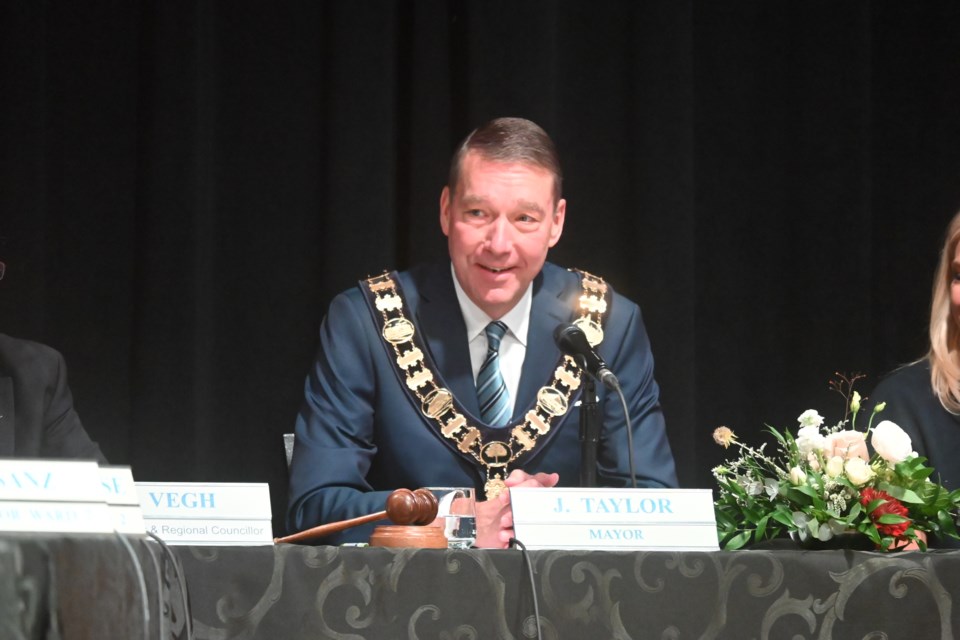York Region leaders are at odds with the province and developers over a new housing bill, which has prompted Newmarket’s mayor to call for a debate.
The province passed Bill 23, the More Homes Built Faster Act, this week, after a month of pushback from municipalities. While many developers have celebrated the bill's efforts to cut municipal fees and speed up planning processes, municipalities have cried foul over the impact of lost revenues on their budget and the likelihood of property tax increases.
As Minister of Municipal Affairs and Housing Steven Clark goes to bat for the passed bill, Newmarket Mayor John Taylor said he would like the chance to debate the issues, as someone who has worked on housing affordability for the past 15 years.
“This is going to have a far-reaching impact on all towns and cities for many years to come if this is not reversed or significantly amended,” Taylor said. “If they’re confident in all their facts and they’re confident their plan is going to work, I would ask the minister of municipal affairs and housing to debate this with me.”
The bill’s measures include removing development charges on affordable housing and reducing it on rental units, allowing up to three units to be build “as of right” on residential lots and removing site plan control from developments with fewer than 10 units. But multiple sectors have pushed back on the bill, with concerns ranging from the municipal budget impact to it not doing enough to address affordability.
In a letter to the Association of Municipalities of Ontario and the Big City Mayors Caucus Nov. 30, Clark pushed against the municipalities’ argument that losing fees could hurt their ability to fund the infrastructure to allow for more housing.
“Municipal fees and taxes currently add an average of $116,900 to the cost of a single-family home in the Greater Toronto Area before a single shovel is in the ground,” Clark said. “That is why our decision to rein in unsustainable and out-of-control municipal fees on new homebuyers is the right thing to do, and that is why our position on Bill 23 will not waver.”
He added that they would conduct a third-party audit on municipalities to understand their finances. He said there would be “no funding shortfall" for housing enabling infrastructure as a result of Bill 23, so long as municipalities achieve their growth and housing pledge levels.
“Together, we can use this process to get the facts, make improvements, and better serve taxpayers by exploring alternative tools for growth to appropriately pay for growth,” Clark said.
Many parts of the building sector have already backed the bill. BILD, representing GTA builders including York Region, has voiced support for Bill 23.
“We are operating in a planning and zoning environment built for an Ontario of yesteryear," its president, Dave Wilkes, said after the bill was introduced. "It simply takes too long to get approvals, it is too difficult to add the gentle density we need in our cities, and too many fees and charges are layered onto new homes by municipalities."
But Taylor said the idea that reducing development charges would reduce housing costs is wrongheaded. He said prices are set at what the market will bear, not what a build costs.
“It’s just completely flawed to think the market actually works that way,” Taylor said.
Taylor also said Newmarket cannot meet the provincial targets of 12,000 new homes by 2031, due to a lack of sewage capacity as it awaits an expansion of a Durham sewage plant. He further added that Bill 23 compounds on moves by the province earlier this year to municipalities to refund development charges if they do not decide on applications in a set timeline.
The province is indicating leniency on that point. Clark said it will introduce legislation to push back the implementation of those refund rules from Jan. 1 to July 1, 2023.
He also said they would work with municipalities to ensure a share of the federal government’s $4-billion housing accelerator fund.
“Together, we will ensure we can achieve our shared goal of building desperately needed homes,” Clark said.
Other municipalities are estimating a potential 20 per cent loss in development charges and expect municipal tax increases. Taylor said Newmarket still has to sort out the tax implications of Bill 23, and it should not have a ton of impact this year, but will be felt in years to come.
He said he has pitched an idea at the small mayors' caucus to specifically note in budgets the property tax increase brought about due to Bill 23.
“It’s got to be clear where this is coming from."
The provincial’s housing strategy warrants more debate, Taylor said.
“I don’t believe what they’re suggesting will stand a test of scrutiny,” he said. “It deserves a greater conversation and I would be happy to have that in a constructive manner.”
